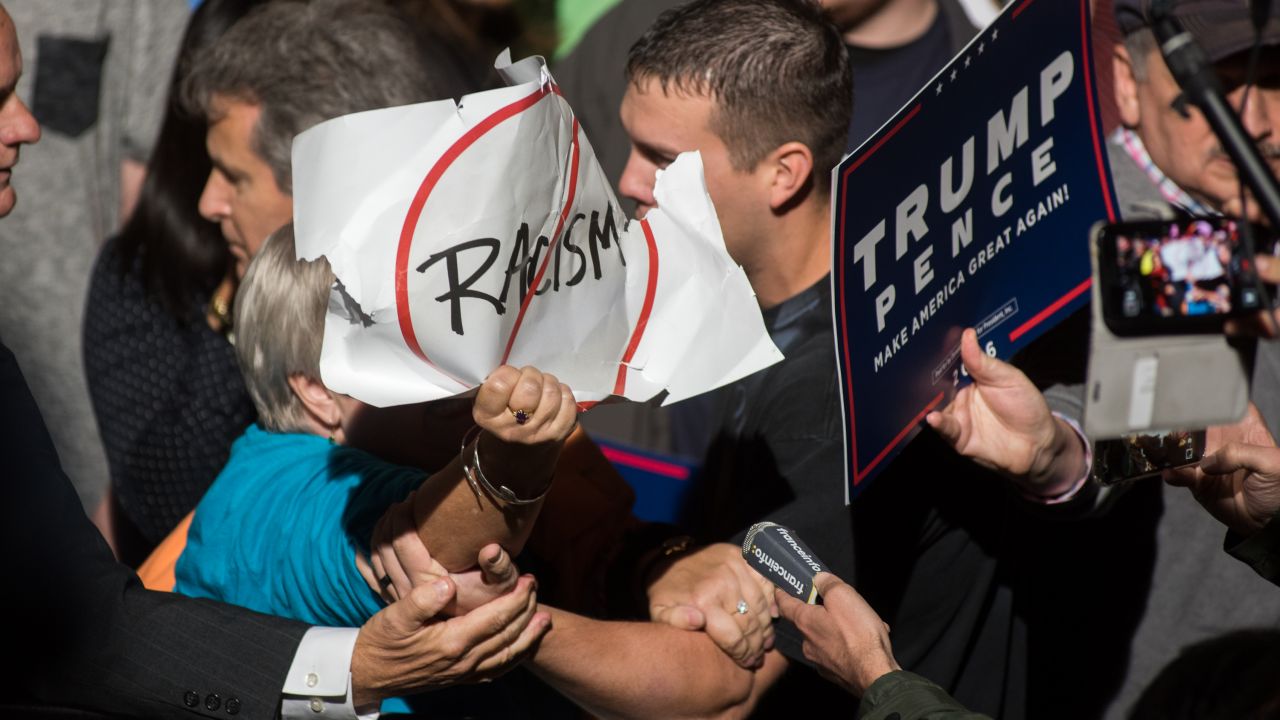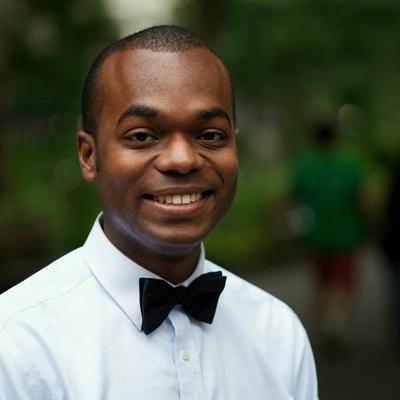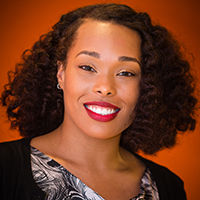
A scene from a Donald Trump campaign rally in Cedar Rapids, Iowa. (Photo: David Greedy/Getty Images)
This post originally appeared at Talk Poverty.
This wasn’t an election. It was an exposure.
That was a common thread of the 2016 Facing Race conference in Atlanta, Georgia, where more than 2,000 activists, community organizers and journalists from across the country gathered for two-and-a-half days to talk about racial justice. While many people are still scrambling to make sense of Donald Trump’s win over Hillary Clinton in the presidential election, for the maligned and marginalized, it’s less tricky to pluck out the heart of the mystery.
“I was stunned that I was stunned,” civil rights scholar Michelle Alexander told the audience. Alexander pointed out how widely entrenched — and ignored — black suffering continues to be in the United States. She catapulted the issue to national attention in 2010 with her book The New Jim Crow, which focused on mass incarceration’s heavy toll on black families. But we see this systemic racism tightly woven into other issues too, including the school-to-prison pipeline, the legacy of redlining and crumbling infrastructure in cities like Flint, Michigan.
Barack Obama’s presidency offered a glimmer of hope that the country was ready for a long-overdue reckoning with this pain. But last week’s election and its aftermath say the exact opposite: After having had a black man in the White House for seven-plus years, white Americans pulled rank. Or as CNN’s Van Jones put it, the election results were “a white-lash against a changing country.”
Exit polls are hardly perfect, but they can reveal important trends. For instance, more than half — 58 percent — of white voters preferred Trump, while 88 percent of black voters cast their ballot for Clinton. And perhaps more interestingly, while 94 percent of black female voters supported Clinton, 53 percent of white female voters showed a preference for Trump. This isn’t to say that all white voters who decided to get behind Trump did so as a direct statement of racism. But, at the very least, Trump’s murky brew of misogyny and racism wasn’t a deal breaker for a broad range of white voters. That shines a light on a galling indifference to the misery and oppression of others.
So where do we go from here?
Alicia Garza, co-founder of the Black Lives Matter movement, made it clear that group-specific siloes aren’t the answer. It’s tempting for groups already on the social and political fringes to retreat into enclaves to protect our own, but — especially at a time like this — we have to keep a close watch on the overlapping ways in which oppression operates. “We’re all being attacked, and our movement needs a broader front” in order to keep the needle of progress moving, Garza said. Because at the end of the day, whether you’re black or brown, “we’re all going down together.”
There was also a call for progressive white Americans to do more for, and to do better by, their non-white allies.
“I’m done with ally-ship. I’m done with people who allow themselves the distance of ally-ship,” said Roxane Gay, one of the keynote speakers and the bestselling author of Bad Feminist.
“The people who are calling for healing and reconciliation are well meaning but dangerous, because they’re delusional. They know better. They don’t want to do better,” she added. Gay spoke specifically to what she sees as the performative ally-ship of white progressives. Beyond merely donning solidarity safety pins and parroting Martin Luther King Jr. — a favorite of many a white progressive — white allies ought to walk the walk. Have those prickly conversations with other white people. Donate money to groups looking to extinguish racism. Stop focusing exclusively on whiteness when talking about post-election anxieties, when people of color are the ones who have been feeling the stab of these anxieties most.
And while white people need to “get their s–t together,” Gay said, people of color should have an eye to “infiltrating” what are overwhelmingly white spaces. “We need to think about running for office. Run for city council. Become a member of Congress. Get inside, and suck it up.”
Indeed, Trump’s upset in the presidential race has cracked wide open just how persistent and pervasive American racism has always been. This is a point that many black Americans have been making in the wake of the election. Whenever the United States has seemed to bend toward a more racially inclusive brand of democracy — from Reconstruction to the Civil Rights Movement to the Obama era — what has often followed has been an equal and opposite push to reclaim a whiter status quo. We saw it in Jim Crow, and in Richard Nixon’s anti-civil rights administration in the 1970s, and we’re seeing it now. This is America, being America.
There’s a long fight ahead of us. And as Linda Sarsour, the Advocacy and Civic Engagement Coordinator for the National Network for Arab American Communities, drove home on the final day of the conference, it has to be all hands on deck. Our future may depend on it.
“All we have is each other. Ain’t nobody got time for part-time progressives,” she said. “Everyone has a role to play in the movement.”






